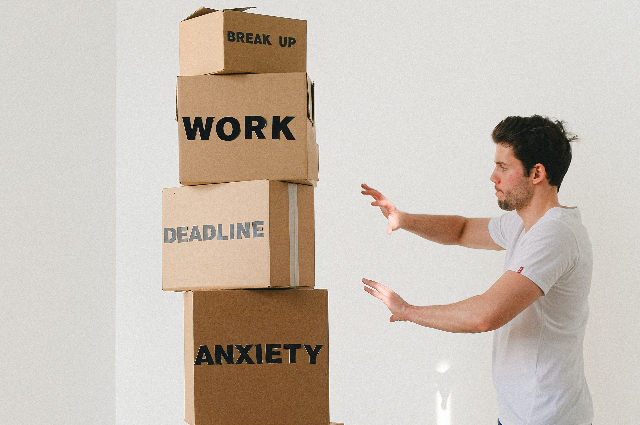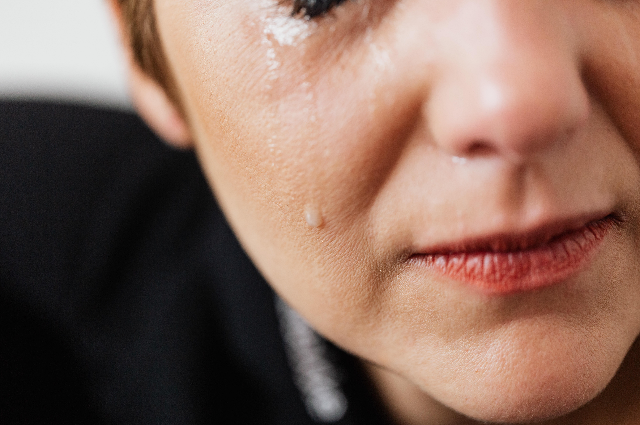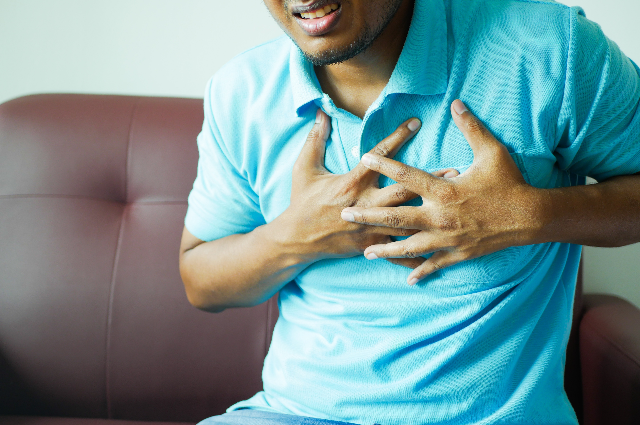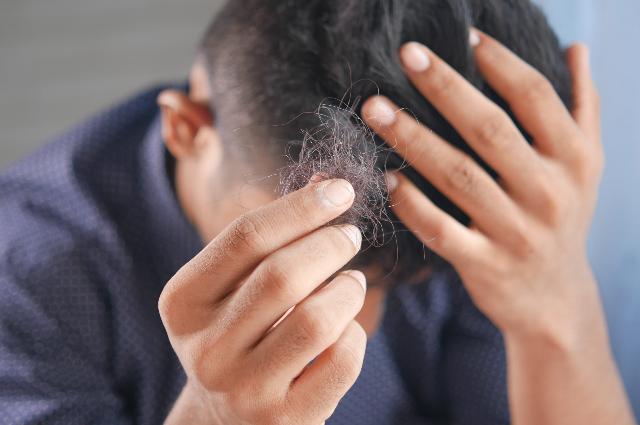Stress, in general parlance, is tension. It can be positive and negative. Stressors in the body come easily but go after a lot of self-efforts and self-belief. Your health is your most valuable asset and the best investment you can make because it will give you the highest returns, and you will feel overwhelmed.
The endocrine system releases stress hormones, making us react quickly to stressful situations. It brings about a fight-or-flight situation, though it can be fatal sometimes. Almost every second, we start feeling stressed. From fearing to die to cutting your nails, stress is everywhere. Stress is the national institute of our physical and mental health.
Stressors are the factors or symptoms that cause stress. Stress response" or "fight or flight response" is the abrupt manner of how your body reacts. Stress responses can be either favorable or unfavorable, controllable or uncontrollable. It can be physical stress response, emotional and thoughts stress response, behavioral stress response. We are living with stressors in the body and it is not the correct element to live your life with.
There Are Mainly Two Types of Stressors in the Body:

1. Acute stress
It is a short-term natural stress. It is experienced on a daily basis. However, adopting poor stress management techniques can lead to chronic stress, and such effects of stress affect our well-being.
For example, traffic jams, running late, fighting with your partner, trying to start something for the first time, deadlines in school or at work, low attendance, etc
2. Chronic Stress
It is a long-term stress that usually lasts a long time. For example: financial issues, no job stability, an unhappy marriage, etc. It causes too much stress. Chronic stress has more effects compared to acute stress. It affects people more severely as compared to acute stress.
For example, financial issues, job stability, an unhappy marriage, future responsibilities, fatigue, a lack of concentration, menstrual problems, high blood pressure, weight gain, weight loss, severe headache, etc.
What Are the Stressors in the Body?
1. Physical Stressors

Muscle aches, insomnia, Weight gain, fast pumping of the heart, Increase in heart rate, Nausea, low energy, tight chest, Upset stomach, Dizziness, Sweating, Leg cramps, chills, constipation, and weakness.
2. Emotional Stressors

Agitation, Aggression, Depression, Anxiety, Restlessness, Insecurities, Jealousy, lack of motivation, Mood swings, mood disorders, Nightmare, Rigidity, forgetfulness, numbness, lack of concentration, intolerance, and overthinking.
3. Behavioral Stressors

Avoidance, Feeling of being neglected, More sleeping, Aggressive speaking, stammering, increase in smoking, less eating, overeating, Sexual problems, Nail Biting and Aggressive talking and many more.
What Are the Effects of Stress?
1. Stress Can Cause Headache
Our minds keep on overthinking, ending up with pressure on the brain and thus causing migraines and severe headaches. Such headaches lead to high blood pressure and the regular intake of blood pressure medicines.
2. Stress Can Cause High Blood Pressure
Severe headaches, hypertension, nosebleeds, and shortness of breath are some of the stress symptoms of our body's reaction to high blood pressure.
3. Stress Can Cause Cardio-Vascular Disease

When it comes to the cardiovascular system, our hearts pump faster than normal and can also increase our blood pressure. Chronic stress puts pressure on your heart, and eventually, one gets affected by heart disease and ends up having a stroke, a heart attack, chest pain, or cardiac arrest
4. Stress Can Affect Our Endocrine System
During chronic stress, a group of nuclei known as the hypothalamus, which connects our brain and endocrine system, communicates with the pituitary gland to release hormones. The pituitary gland then gives signs to the adrenal glands to increase the release of cortisol.
5. Stress Can Affect Our Autonomic Nervous System
(Source: National Institute of Health)
Our nervous system is divided into several parts. The central nervous system and the peripheral division. It includes the brain and spinal cord, and the peripheral division includes the autonomic nervous system and the somatic nervous system.
The autonomic nervous system is directly connected with our physical response to stress. The autonomic nervous system is further divided into the sympathetic nervous system (SNS) and the parasympathetic nervous system (PNS).
The sympathetic nervous system is the main source of the fight-or-flight response. The parasympathetic nervous system helps the body recover into the stress relief stage and helps to activate the relaxation response by promoting broad blood vessels. More PNS can lead to asthma.
6. Stress Can Affect Our Sleep Cycle
The more you are stressed, the more cortisol hormones are generated, which increase eye movements, and you either fail to fall asleep or take a very long time to fall asleep and become an insomniac person.
7. Digestive Problems and High Acidity

Chronic stress, being the long-term stress, causes overthinking, which eventually affects the digestive system, leading to an upset stomach, ulcers, and constipation. Thus, one must find out the relaxation response for such stress symptoms. Also, stress leads to gas and acidity, and when this gas and acidity problem gets extreme, one faces chest pain, breathing issues, and a bloated stomach.
8. Stress Can Cause Excessive Sweating and Muscle Tension
Excessive sweating causes breathing problems and such chronic stress can impair the heart function. Chronic stress can affect the working of the muscles that guard our body. Muscle tensions are the spontaneous effects of stress.
9. Mental Health and Mood Disorders
Mental health has now been given importance due to the increase in suicide rates. Depression affects the sleep cycle, causes mood swings, causes digestive problems, and affects appetite. Lack of interest makes your behavior impulsive. Aggression is the new mood of all the generations. In such a stressful event, the emotional support of your loved ones does wonders, and your stress levels decline, thus resulting in a decline in health problems.
10. Stress Can Cause Hair Loss

During stress, the stem cells of the hair follicles generate new hair when they are in the active stage. The inactivity of stem cells leads to hair fall and hair loss.
11. Stress Can Cause More Urination
Stress can have an effect on your urinary bladder function, causing Urinary Tract Infections. Stress lowers your resistance power to fight infections.
12. More Alcohol Intake
Stress can lead to alcohol use and abuse. Alcohol can either increase your stress hormones if used frequently or calm your mind if not used frequently.
How to reduce stressors in the body?
1. Reduce Phone Addiction
Phones have become one of the most concerning stressors in the body. Our lives are dependent on technology. Smartphones, computers, laptops, and tablets, to a certain extent, plan our daily routines. Spending too much time on these devices increases our stress levels and makes physiological changes in our bodies, where sitting in one place can cause weight gain and muscle stiffness. These devices also promote psychological changes. Reducing screen time and mobile usage makes you realize that there is a beautiful world that exists besides the phone.
2. Enough Sleep
Getting enough sleep may help to reduce health problems, stay healthy, keep the resistance of our body high, improve concentration and mindfulness, strengthen your heart, avoid depression, result in a healthy immune system, avoid the dangers of stress, and regulate emotions. Sleep calms your mind and energizes to fight against the stressors in the body and prevent them.
3. Deep Breathing Exercise

Rapid breathing is the respiratory stress response. Deep breathing makes you happy from the inside and makes your mind calm. Breathing is a part of the fight or flight response, which helps to reduce cases of heart disease like chest pain, heart attack, cardiac arrest, and fast heart pumping. In short, it normalizes our heartbeats. Breathing generally involves inhaling oxygen and exhaling carbon dioxide. A person often faces changes in his breathing patterns when he is under stress. The relaxation response of deep breathing helps to lower the blood pressure, reduce stress hormones, lower the stress symptoms, balance oxygen and carbon dioxide levels, and increase physical energy. Deep breathing calms your mental health and energizes you to stay physically active.
4. Music and Art
Music is one of the best natural stress-reduction therapies. Whenever one is under stress, he or she listens to certain genres of music. Music calms your mind, boosts your body, and improves your health by making you feel relaxed. Painting, drawing, and other types of creativity calm your mind and make you think positively and lower your cortisol levels.
5. Practice Yoga and Other Physical Activities
One of the scientifically and medically proven stress management techniques for reducing stress is Yoga. It is one of the best stress management treatments to prevent stressors in the body. Yoga and breathing level and helps in stress management, stress reduction, anxiety reduction and relaxation. Yoga, Meditation and other physical exercises like Tai chi can be one of the weapons to fight against each and every stress response.
6. Healthy Meal

Diet is not effective every time. Eat healthy food to get the required nutrition, minerals, vitamins, proteins, and calcium, which will ultimately improve your mood. Healthy food is required for physical and mental health as well as for managing stress. Fruits, vegetables, and multi-grains give you energy and help manage stress. For stress relief, one must avoid unhealthy foods in order to avoid the danger of unwanted health problems. Eat what suits your body. Eating more sugar and processed foods increases the chances of a heart attack.
7. Laugh
One of the best exercises and medicines to avoid the dangers of stress is laughter. It activates your facial muscles to smile. It releases endorphins and decreases the release of cortisol to lower stress. For good health, laughter does wonders.
8. Spend Time With Your Loved Ones
For emotional support, spend time with your family, relatives, cousins, friends, pet, and yourself. Spending time with your loved ones helps you cope with loneliness and overthinking. Be socially active. More social interactions are important for your mental well-being. To avoid the danger of being socially inactive, go out and talk.
9. Make Nature Your Friend
Spending time in nature makes you realize the importance of life. Nature teaches you to fly freely like a bird, stand straight like a tree, blossom like a flower, shine bright like the sun, twinkle like a star, and many more ways to manage stress. Nature helps you forget all your stress symptoms and find an answer for yourself to avoid the dangers of having stress. Make your body comfortable in every situation.
10. Other Miscellaneous Ways
Maintain a Diary, reading a book, driving or riding, following your hobbies, watching shows and many more.

Always keep in mind that stress is not your failure. It makes you a better person to accept your failures and move forward in life.
Either STRESS: Smile to Reduce Every Single Suffering or STRESS: Situations That Remove Every Single Smile? Choose your own STRESS.
